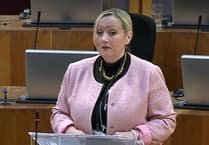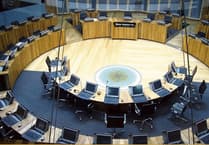The Welsh Government has outlined its approach to gender budgeting, with pilots and research helping to create a gender equal Wales.
Finance Minister Rebecca Evans said gender budgeting underlines the Welsh Government’s commitment to be a feminist government.
Gender budgeting is an analysis of how policies and associated budgets impact different genders. The approach does not mean different budgets for women and men. Instead, it involves actively identifying the impacts of spending on gender equality, leading to better focused funding decisions and in turn better outcomes.
Three gender budgeting pilot schemes are taking place in Wales, in the areas of skills, employment and active travel. The Welsh Government has also signalled its plans to take forward work in gender research linked to health, to address embedded gender inequality and support the health service in delivering high quality healthcare for women and girls.
Rebecca Evans, Minister for Finance and Local Government, said: “We are committed to being a feminist government and gender budgeting is an important part of this effort. It recognises that the needs of the people of Wales are not uniform, and that better understanding the effect of our spending decisions will improve the effectiveness of our policies.
“Two of our pilots are in areas focused on improving people’s skills. The World Economic Forum has highlighted the challenge of women’s under-representation in emerging roles, and we know that women continue to be underrepresented in STEM careers.
“Gender budgeting sits alongside our plan to advance gender equality, and these pilots are helping us to learn vital lessons about how our spending and policy decisions can achieve this objective. We are still at an early stage of this approach and we will work closely with our partners and external groups as we look to develop gender budgeting in the future.”
Personal Learning Accounts provide support for employed people on below average salaries to gain higher level skills, helping them access a wider range of job opportunities. Funding is specifically targeted at labour shortages and skills gaps in priority sectors such as health and social care, logistics, green construction and renewable energy. A key objective of the gender budgeting pilot is to help people develop skills in non-gender typical areas.
The Young Person’s Guarantee gives everyone aged 16-24 the offer of support linked to work, education, training or self-employment.
The gender budgeting approaches as part of this work is in recognition of the complex barriers some people may face in accessing support, and will help the Welsh Government better target funding and mitigate against unintended impacts.
Active travel is a key part of the Welsh Government’s vision for the Welsh transport network. A gender budgeting pilot is specifically focused on the Wales E-Move programme, which operates low-cost community-based e-bike hire and loan schemes in five areas in Wales – most with high levels of deprivation.
The Welsh Government is working alongside Sustrans Cymru, who are delivering the scheme, to better understand how a gender budgeting approach could add value and inform future delivery.



